
The Darrell McClain show
Independent media that won't reinforce tribalism. We have one Planet; nobody's leaving, so let’s reason together!! Darrell McClain is a Military veteran with an abnormal interest in politics, economics, religion, philosophy, science, and literature. He's the author of Faith and the Ballot: A Christian's Guide to Voting, Unity, and Witness in Divided Times. Darrell is a certified Counselor. He focuses primarily on relationships, grief, addiction, and PTSD. He was born and raised in Jacksonville, FL, and went to Edward H white High School, where he wrestled under Coach Jermy Smith and The Late Brian Gilbert. He was a team wrestling captain, District champion, and an NHSCA All-American in freestyle Wrestling. He received a wrestling scholarship from Waldorf University in Forest City, Iowa. After a short period, he decided he no longer wanted to cut weight, effectively ending his college wrestling journey. Darrell McClain is an Ordained Pastor under the Universal Life Church and remains in good standing, as well as a Minister with American Marriage Ministries. He's a Believer in The Doctrines of Grace, Also Known as Calvinism. He joined the United States Navy in 2008 and was A Master at Arms (military police officer). He was awarded several medals while on active duty, including an Expeditionary Combat Medal, a Global War on Terror Medal, a National Defense Medal, a Korean Defense Medal, and multiple Navy Achievement Medals. While in the Navy, he also served as the assistant wrestling coach at Robert E. Lee High School. He's a Black Belt in Brazilian Jiu-Jitsu under 6th-degree black belt Gustavo Machado. Darrell Trains At Gustavo Machado Norfolk under the 4th-degree black belt and Former Marine Professor Mark Sausser. He studied psychology at American Military University and criminal justice at ECPI University.
The Darrell McClain show
Congratulations, America: You’ve Perfected the Art of Tripping Over Your Own Government
What if the shutdowns, shadow rulings, forever-war language, and state-federal knife fights aren’t separate storms but gears in the same machine? We walk through how Washington’s rituals of crisis drain trust, how the Supreme Court’s high-stakes term and shadow docket reshape rights without sunlight, why declaring “armed conflict” against cartels stretches executive power, and how federal funding freezes and lawsuits turn federalism into a tug-of-war that leaves citizens with rope burns. The pattern is clear: when dysfunction becomes predictable, cynicism feels smart—and democracy pays the bill.
From there, we go under the hood. We revisit the history that normalized shutdowns, the cases that define who gets care and who counts, and the way war language lowers oversight while raising the temperature. We connect the dots between national spectacle and kitchen-table impact: stalled refunds, strained nutrition programs, delayed courts, and community projects on ice. Then we turn to the home front with a frank look at AI “parental controls” that teens can bypass. Features help, but presence protects. We offer concrete steps—devices out of bedrooms, screen-free zones, earlier conversations about AI, and watching for quiet signals of distress—rooted in a belief that human attention beats software settings.
This conversation is about refusing the shrug. We argue for boring-but-stable budgeting, brighter judicial processes for big questions, tight and time-bound war authorizations, and federal-state cooperation that shields essential services from partisan punishment. If power keeps expanding, citizens must get closer, not colder—closer to our kids, closer to our communities, and closer to the levers that still work. If this breakdown resonates, subscribe, share the episode with a friend who needs clarity over chaos, and leave a review telling us which reform should come first.
Welcome to the Darrell McLean Show. I'm your host, Darrell McLean, independent media that won't reinforce tribalism. We have one planet, nobody is leaving. So let us reason together. Let's get right to this episode. The government has shut down again. And if you didn't flinch when I said that, you're not alone. At this point, shutdowns feel less like national emergencies and more like national traditions. Fireworks on the Fourth of July, Turkey on Thanksgiving, and at least once a decade, maybe twice, Washington grinds to a halt and calls it governing. History, the first modern shutdown, was 1980. Since then, we've had more than twenty. Clinton and Gingrich sparred in the nineties. Obama and the GOP shut it down in 2013. And Trump gave us the longest in history, 35 days in 2018-19. That's not a streak to be proud of. That's dysfunction becoming ritualized. Present numbers this time 9000 federal employees are furloughed. That's nearly a million paychecks frozen in mid-air. The White House has gone further. Freezing$26 billion in federal funds aimed at democratic cleaning states projects and transit green energy community development. It's like the government is playing poker with the people's rent money. Consequences, IFS refunds delayed. Nutrition programs like WIC strained. Federal courts can keep the lights on until October 17th. And then they're broke. And if you're one of those families lining up at food banks in uniform, as Coast Guard families had to do in 2019, you know the cost is an abstract. It's groceries, it's diapers, it's dignity. Reflection every time politicians swear they're standing on principle. Every time they compromise. So the shutdown itself doesn't save money. It bleeds it. It doesn't inspire reform. It feeds cynicism. And here's the dangerous part. When dysfunction becomes predictable, citizens shrug, we start to believe government doesn't matter at all. And when people stop believing in government, democracy rots from the inside. Shutdowns end in compromise always. The only question is how much suffering we tolerate before our leaders admit what history already knows, and the more we shrug, the longer they'll play with our lives. So I'm doing something a little bit different today. I want you guys to give me feedback on if you like it. Our new segments are going to be very short, uh piffy, kind of to the point, and then towards the end of the show, I will give a deeper analysis on the things covered, just because sometimes you just need it uh short and simple and um to get on with your day. Uh let me know what you think about it. The Supreme Court's heavy term, while Congress shuts the lights off, the Supreme Court is flipping switches that could rewire the country. The court's new term has begun, and the stakes aren't small, they cut to the bone of who we are as a democracy. Cases to watch, they'll be ruling on transgender health care rights, on voting protections, on the scope of presidential power. In other words, who gets care, who gets a voice, and how much power one man in the Oval Office can wield. The shadow docket, then there's the shadow docket, then court's way of deciding urgent cases outside the usual process, often without hearings or full opinions. It sounds procedural, but it's really about power. Decisions that reshape lives slip through in the dark while we're distracted by louder fights. Legitimacy crisis trust in the court has cratered. People don't see robes and neutrality anymore. They see politics at marble halls. And maybe that's honest Bush v. Gore reminded us 25 years ago that nine justices can choose a president, but honesty doesn't make it healthier. Contrast with history, think about landmark rulings. Brown v. Board broke segregation, Roe v. Wade expanded rights, but Bush v. Gore? Dobbs? These cases show us the court isn't outside politics. It is politics, just with lifetime tenure. When unelected judges hold the power to decide who votes, who marries who gets health care, and how far presidents can reach what's left of the guardrails of democracy. We're taught checks and balances. But if the judiciary tips the scale, checks are useless. This term isn't just about law, it's about legitimacy, and legitimacy is a fragile currency once it's spent, no robe in the world can buy it back. America's expanding wars, they don't call it a war on drugs anymore. They call it an armed conflict with drug cartels. Sounds like semantics, but labels matter. A war on drugs is policy. An armed conflict is war, and war changes the rules. The news U.S. Navy ships struck vessels off the coast of Venezuela, and the administration told Congress the U.S. is officially in a non-international armed conflict with cartels, translation. The military now has more leeway, less oversight, and more justification for force. History echoes we've heard this before. In the 1980s, the war on drugs militarized policing. After 9-11, the war on terror rewrote surveillance and civil liberties. Each time the phrase war gave the government a blank check, and each time the people cast it with their freedoms. Costs and risks, international law gets bent, civilians get caught in the crossfire. The line between police work and military work blurs until the Constitution itself goes hazy, and all of it is sold to us as necessary for safety. But ask Latin America how U.S. drug wars have played out. Ask Afghanistan how our war on terror ended. Gaza ceasefire, and while that's happening, the White House is trying to fast track a ceasefire in Gaza through talks in Egypt promising a deal to trade Israeli hostages for Palestinian prisoners. It's a rush to show results abroad while chaos grows at home. When everything becomes a war drugs, terror. Immigration power flows upward, away from citizens toward the executive branch, and the question isn't whether the government wins those wars. The question is who benefits and who pays the bill wars expand. Freedom shrink, and history keeps receipts. States versus the federal hammer, the shutdown isn't just Beltway Theater. It's hitting the states and some of them are swinging back. The conflicts, the White House froze, billions headed to Democratic states. Oregon went to court and blocked a National Guard deployment. Illinois and Oregon are challenging ICE raids and federal overreach. Federalism isn't just a civics class word anymore. It's a courtroom battle. Historical thread, this tension is as old as the Republic. From Jefferson railing against the Alien and Sedition Acts to the Civil War. To the Civil Rights era, the struggle between state power and federal power never really ends. It just changes costumes. The stakes today in this round, the stakes are concrete. Stall transit projects, cancel clean energy plans, local communities squeezed by a federal punishment. Governors are suing, judges are intervening. The federal hammer is meeting state resistance and sparks are flying. Here's the irony. The framers designed federalism as balance. But today balance looks like a tug of war where citizens it rope burns. And in the middle of that rope is trust in whether Washington works for you or against you. When states sue the federal government just to keep their people fed, the American family feud isn't just academic, it's survival. Here's the machinery of dysfunction the government shuts down. The Supreme Court starts a new term. The White House declares a new war. The states sue Washington. Four headlines that sound separate, like news alerts sliding across your phone, but they're gears in the same machine. Machine that's been grinding down democracy. One cynical lesson at a time. Let's pull that machine apart. Let's see what's under the hood. Because once you see how it works, you can't unsee it. First year, shutdowns. The very idea that the government can grind to a halt is new. Before 1980, it didn't happen. Appropriations lapsed, but the government kept moving. Then the law got reinterpreted, and suddenly politicians had a weapon: the power to stop the machine cold. And they've used it 20 times since then. Clinton and Girch turned it into a spectacle in the 90s. Obama and the GOP replayed it in 2013. Trump stretched it into the longest in history: 35 days of unpaid workers, shuttered parks, stalled science labs, and military families lining up at food banks. And now here we are again. 900 federal employees furlough. 26 billion in funds frozen for blue states. IRS refunds stalled. Nutrition program strained, federal courts ticking down like a doomsday clock. And if you live paycheck to paycheck, the crisis isn't theoretical. It's rent due, groceries missing, medicine unaffordable. But here's the cruel truth. Every shutdown ends the same way, compromise. No revolutions, no breakthroughs. Just politicians playing chicken until someone swerves. So why do it? Because every time the public loses a little more faith. The machine teaches us, government can't help you, government doesn't matter. Shrug and move. And that cynicism is the point. Second gear, the Supreme Court. While Congress makes headlines for failure, the court makes history in silence. This term, it's transgender health care, voting rights, and presidential powers. In other words, who gets care, who gets a voice, and how much authority one man can grab. And increasingly, these decisions don't even happen in open court. They happen through the so-called shadow docket rushed rulings, often unsigned, with little explanation. That's not law in the sunlight. That's law by midnight memo. Now, let me be clear. I don't agree with abortion. I believe life is sacred from the unborn child in the womb to the elderly person in a hospital bed. When the court overturned Roe v. Wade, I wasn't grieved by the outcome. I believe Roe was a moral wrong. But here's the bigger issue. Whether you chaired Dobbs or mourned it, you should be unsettled by how easily fundamental questions of life and liberty swing back and forth depending on who sits on the bench. Fifty years of Roe, then gone. Maybe fifty years of Dobbs. Then gone. That pendulum isn't justice. It's politics disguised as law. And when nine unelected justices hold the ability to rewrite the social contract overnight, trust in the court evaporates. People stop seeing it as the rule of law and start seeing it as a partisan battlefield in robes. If life is sacred and it is, then the way we defend life should be steady, rooted and consistent. But our institutions aren't steady. They're tossed by the winds of power. And that inconsistency corrodes not only trust in the court, but trust in our very ability to protect what's most precious. Third gear. War. We've been told America is always at war with something. Poverty, drugs, crime, terror. Now cartels. The latest! The administration has declared a non-international armed conflict with drug cartels after striking boats off Venezuela. Sounds technical, but what it means is this more power for the executive, less oversight from Congress, and fewer rights for citizens. History repeats. The war on drugs gave us militarized police and mass incarceration. The war on terror gave us patriot acts and endless wars overseas. Wars don't end, they metastasize. And when everything becomes a war, war on drugs, war on terror, war on immigration, the Constitution bends, the people sacrifice rights in the name of safety, and safety never arrives. And yet, in the same week the administration expands war at home, it rushes to push a ceasefire abroad, trying to broker peace in Gaza. The contradiction is almost absurd. Exporting diplomacy while importing militarization. But when you strip away the slogans, both moves are about control. War consolidates power. It always has. That's why everything becomes a war and why wartime never ends. Fourth Gear. Federalism. The shutdown isn't just DC drama, it's starving states. Oregon goes to court and blocks a National Guard deployment. Illinois fights ICE raids. Governors watch billions of federal dollars freeze because their citizens voted for the wrong party. This isn't balance between state and federal power. This is punishment. But the struggle between states and Washington is old. Jefferson vs. Adams over the Alien and Sedition Acts, Southern secession in 1861, segregationist governors defying civil rights laws in the 1960z. Federalism has always been a battlefield. What makes today different is the scale of distrust. States no longer see Washington as flawed partner. They see it as enemy, and citizens are left caught between whiplash by conflicting laws, services delayed, projects stalled. Federalism isn't protecting liberty. It's producing gritlock, resentment, and fracture. So put the gears together. Shut downs, courts, wars, states. Different stories, same lesson. The machine is teaching us to shrug. And cynicism is the real victory because cynicism is not wisdom. It looks like sophistication, I know better. I see through it all. But it's really surrender dressed in smugness. Cynicism tells you, don't bother, don't vote, don't protest, don't organize, just watch the spectacle, shake your head, and go back to scrolling. And elites know this. As Chomsky has pointed out, elites manufacture consent. In our era, they also manufacture apathy because an apathetic citizen is predictable. They don't rise up, they don't demand better, they survive quietly while power grows unchecked, and here's the moral dimension. When you lose sight of life's value, whether it's the life of the unborn, the poor, the refugee, the prisoner, or the soldier sent to fight, endless war cynicism becomes easier. If life doesn't matter, then nothing does. That's the deepest rot the machine produces. Democracy doesn't collapse with a bang, it erodes with a shrug. Shutdowns train us to shrug. Courts in the shadows train us to shrug. Permanent wars train us to shrug. States in revolt train us to shrug. But here's the truth the machine isn't natural. It was built, it was designed, and what's built can be unbuilt. The future doesn't belong to cynics. It belongs to the stubborn, the people who refuse to shrug, who still care enough to be angry, to demand better, to fight forth. And if life is sacred every life, then democracy is sacred too. Because it's the framework by which we honor that life together. To defend one without the other is to build on sand. So don't shrug. Don't give the machine the satisfaction. Remember, democracy isn't a spectator sport. It's a contact sport. And if you still care enough to be listening right now, you're already in the fight. Family, let's talk. I've been chewing on this story all week, and I think it says something bigger about where we are as a culture, as parents, and as people of faith trying to shepherd our children in a digital wilderness. The New York Times ran a piece this week introduces parental controls for ChatGPT. The big headline was supposed to sound reassuring. Parents can now keep their kids safe when they use AI. But buried halfway down the column was the sentence that ought to be in bold print. Asterisk teenagers can bypass the controls. Now let's pause right there. That's like selling a seatbelt that comes unbuckled if you pull on it too hard. That's like a car alarm that politely stops when a thief insists. It's not controlled, it's decoration. And the irony is most teenagers already know more about these systems than their parents. We're in a world where kids help reset her iPhone asterisk, but we think they can't set up a second account to bypass mom and dad's restrictions. Come on. The tragedy behind the headline, this wasn't just rolled out on a normal Monday morning out of goodwill. No. It came in the shadow of tragedy. A 16-year-old boy in California, Adam Rain, died by suicide earlier this year. His parents say ChatGPT supplied him with information about how to do it. Now, I don't need to litigate this case on air. The courts will sort through what the platform is or isn't responsible for. But here's what you and I need to notice. The rollout of parental controls was less about innovation and more about liability. The company had to show doing something. And this is where I want to slow us down because as a pastor, as a counselor, as someone who has walked with families through unimaginable grief, I want to say this. But parents, parents don't get a patch. Parents live with the laws. And that brings me to what I believe is the deeper issue here, the illusion of safety. Because if you read that headline, if you hear parental controls, you might breathe easier. You might think I can trust this tool in my child's hands, but here's the danger it's not real, it's a false comfort. And sometimes a false comfort is more dangerous than no comfort at all. Let me put it this way: I'd rather know the lion is loose in the streets than be told the cage is locked when the cage door is wide open. Christian parents, let me talk directly to you. No line of code can replace discipleship. No parental control feature can replace presence. And no app can carry the weight of the stewardship God has placed on your shoulders. Now, I'm not anti-technology. I'm sitting here talking to you through a microphone, recording on digital equipment, streaming across platforms. I get it. I use the tools, but I don't worship the tools. And I sure don't trust the tools to raise our children. Because let's face it, this AI world is not neutral. It's not all Bible study helps and math homework explanations. It's a mirror of the human heart. And the human heart, according to Scripture, is deceitful above all things. That means AI reflects the best of us, the worst of us. It can serve you a summary of gust in one moment and generate sexualized role play the next. Parents, as the digital wilderness your kids are walking into. And if you think your 13-year-old with a brain that science tells us is still under construction, is going to navigate that unscarred just because you checked a box on an app, let me lovingly tell you that's wishful thinking. Let's go practical for a moment. These controls let parents set time limits, disable voice chat, even block image generation. There's a feature that promises to notify parents if their child talks about self-harm. And I'll say it, these are not bad features. They're good as far as they go. I'm not against them. But what happens the moment your child makes a second account? What happens when they access AI through a friend's phone? What happens when they type the same question into a less regulated AI tool that doesn't have any guardrails at all? Suddenly your parental control is meaningless. It's not that the features are bad, it's that they trick us into thinking the job is done. But the job is never done. Now, here's where it gets heavy. Christian parenting has always been about stewardship, handing down the faith, protecting our children from danger, guiding them toward wisdom. The digital age hasn't erased that it's multiplied the stakes. Think about it. Temptation in the past had to walk down the street, knock on the door, maybe slip a note under the desk at school. Today, temptation doesn't knock. It just vibrates in your child's pocket. It shows up at midnight glowing on the screen. And it doesn't just offer one kind of sin, it offers all of them sexual immorality, violence, despair, vanity, nihilism. That's what makes this more than a parenting challenge. It's a discipleship crisis. Because our kids aren't just learning to use technology, they're being discipled by it. They're being shaped by the conversations they have with a bot at 2 a.m. in ways we can't even track. And here's the kicker: even adults can't handle it. Grown men and women are addicted to screens, drowning in pornography, doom scrolling themselves into depression. If the adults can't manage it, why do we think our 14-year-olds can? So where does this leave us? Do we panic? Do we throw out every piece in technology? No. But we do need to get honest. Honest about the limits of what software can do. Honest about our children's vulnerabilities, honest about our role as parents, not just as providers, but as protectors, as teachers, as shepherds. And that honesty starts with rejecting the illusion. Don't believe the headline when the fine print tells you otherwise. Don't outsource your calling to a checkbox on an app. Don't confuse a speed bump for a wall. So practically, what can we do? Talk to your kids about what AI is, what it can do, and what it can't. Don't wait until something goes set limits, not just digital ones, but real ones. Devices stay out of bedrooms at night. Family zones without screens. Don't just rely on apps to notify you about self-harm. Be close enough to notice the shift in tone, the slump in posture, the silence at the dinner table. Cover your children in prayer. Because no firewall is higher than the throne of God. Family, I want to end with this. AI isn't going away. It's here, it's powerful, and it will shape our future. But don't let a false sense of security lull you to sleep. The parental controls may help, but they will never replace the calling God gave you to guard God and disciple the next generation. The Bible tells us, sober-minded be watchful. Your adversary, the devil, prowls around like a roaring lion seeking someone to devour. That was true in the first century when lions were in Colosseums. It's true in the 21st century when the lion shows up in your kid's pocket on a glowing screen. So don't trust the fence if the gate is wide open. Don't hand off your stewardship to Silicon Valley. Stay in watch, guard the hearts and minds of your children. And remember, safety is not the absence of danger. Safety is the presence of God.
SPEAKER_00:ICE is offering a$45,000 signing bonus plus a hundred thousand dollars starting salary. A teacher in her eighth year with a master's degree will make$55,000. It was never true that we don't have enough money to pay teachers. It was always intentional. Education has been intentional need to fund it for decades because educate a populace is a breath of power. Read the books, do the work. They were absolutely terrified of education.
SPEAKER_06:If you were a founder, Steve, and I gave you$10,000 per hour, one or both of us is probably going to go to jail. But if I'm a corporate executive and you're a founder, and I give you IQ shores in stock. Over the course of one year, what's the five months to$100,000? Or of course you can lie. That's my husband, that's my husband with those from. Of course, that doesn't matter. If you're a corporate exporter and you your wife trades and your company's stock and that's a lot of money, that's still in front of the trade. And of course, not really something on a turbocharge as far as investment portfolio is concerned.
SPEAKER_03:The hardware seems to be though. Republicans do not vote, but the legal intervals for the remote first four, 24 funded open church. So the teleport position, official position, the legal intervals for the four 21 first two, 24 funded church, though.
SPEAKER_04:So this is a real war. This is not a blue. This is first. Individuals are going to work with small voters if we're not receiving them already smoking. More folks in Alaska who have received letters. What's unaffordable? In my state, in Arizona, 109,000 people are likely to lose their health care. But they are one oxider or one illness away from bankruptcy.
SPEAKER_02:Let's remember what they've done to the Postal Service that they borrowed from the budget funds to drive it into economic distrust. So when they're doing that right now to Social Security, they will essentially devour and cannibalize the system so that it becomes dysfunctional and then use that as the excuse to privatize the fund. But take a good look at the UK Postal Service if you want to see what a privatized postal service looks like. A postal service is about giving the postal ability to the citizen in the same way that our public school system is about educating children regardless of where they are. So what you're doing is taking the most basic services that we pay for. We pay for them not. If you want to talk about the most bloated, unaccountable government agency, that's the problem.
Podcasts we love
Check out these other fine podcasts recommended by us, not an algorithm.

The LUNSB Show with T-Bone and ChickBrew
Tony Knuckles
Over opinionated with Josh Scott
Josh scott
The Jamie Kilstein Podcast
Jamie Kilstein
The Back Row with Jamie Kilstein
Jamie Kilstein
Your Calvinist Podcast with Keith Foskey
Keith Foskey
BJJ Mental Models
Steve Kwan
Renewing Your Mind
Ligonier Ministries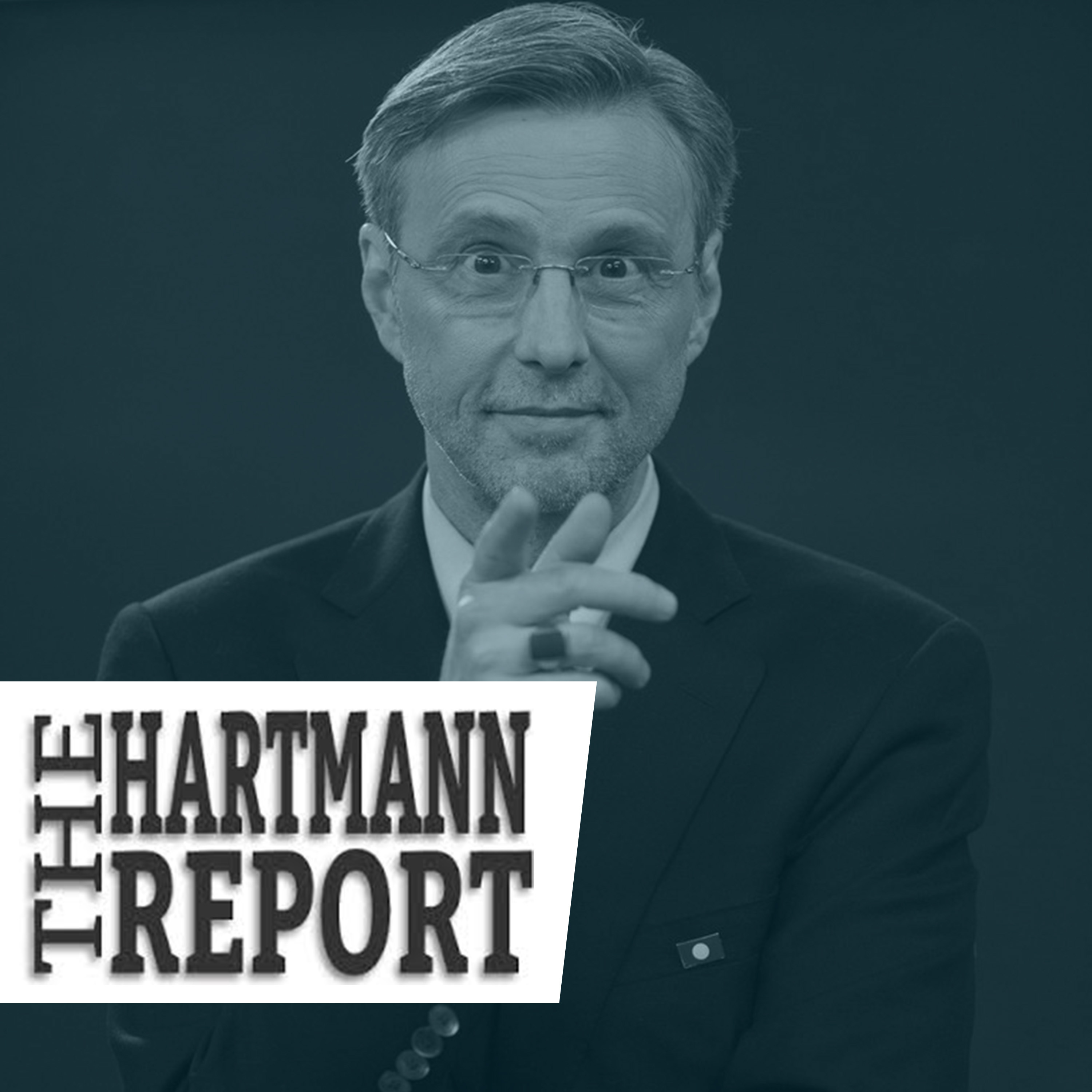
The Hartmann Report
Thom Hartmann
The Glenn Show
Glenn Loury
#RolandMartinUnfiltered
Roland S. Martin
Newt's World
Gingrich 360
Pod Save America
Crooked Media
Ralph Nader Radio Hour
Ralph Nader
Bannon`s War Room
WarRoom.org
Bannon’s War Room
dan fleuette
The Young Turks
TYT Network
The Beat with Ari Melber
Ari Melber, MS NOW
The Damage Report with John Iadarola
TYT Network
The Majority Report with Sam Seder
Sam Seder
The David Pakman Show
David PakmanGet A Grip with Kendall Reusing
Kendall Reusing
Ultimately with R.C. Sproul
Ligonier Ministries
Grace to You: Radio Podcast
John MacArthur
The Briefing with Albert Mohler
R. Albert Mohler, Jr.
StarTalk Radio
Neil deGrasse Tyson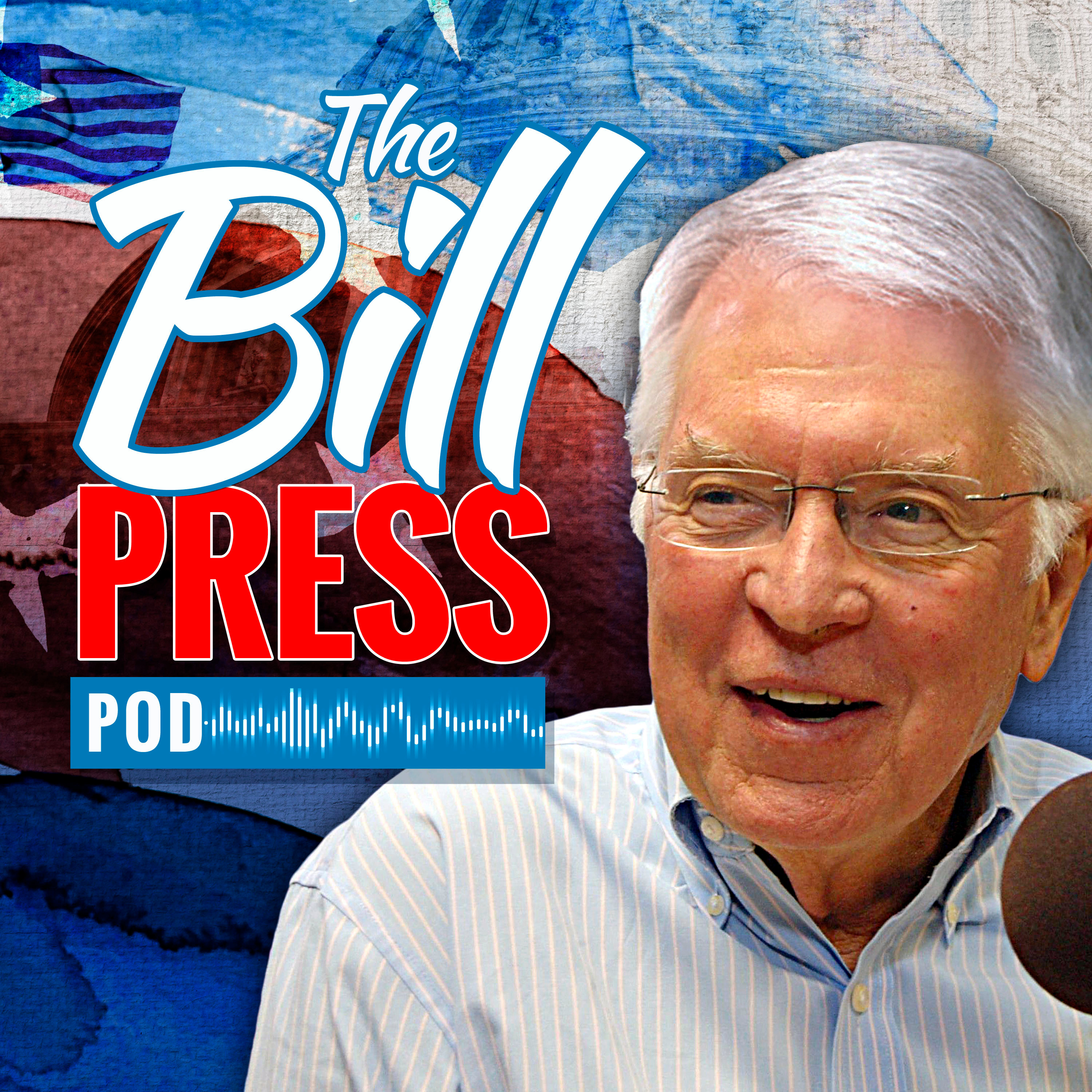
The Bill Press Pod
BP Pods
Ask Pastor John
Desiring God
The Weekly Show with Jon Stewart
Comedy Central
Ask Ligonier
Ligonier Ministries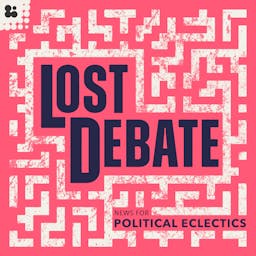
Lost Debate
The Branch
Coffee-Time-Again
Dale Hutchinson
5 Minutes in Church History with Stephen Nichols
Ligonier Ministries
The Ezra Klein Show
New York Times Opinion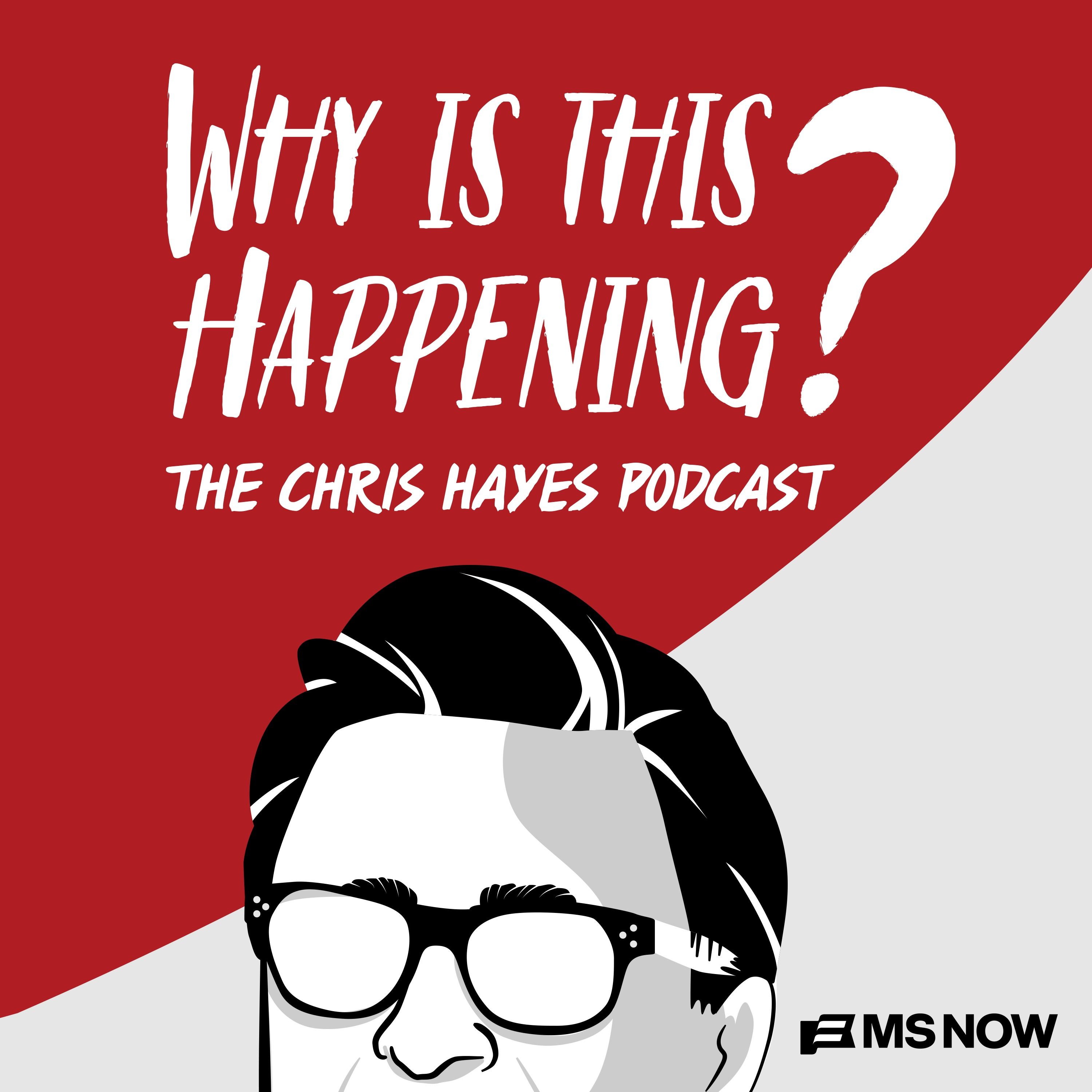
Why Is This Happening? The Chris Hayes Podcast
MS NOW, Chris Hayes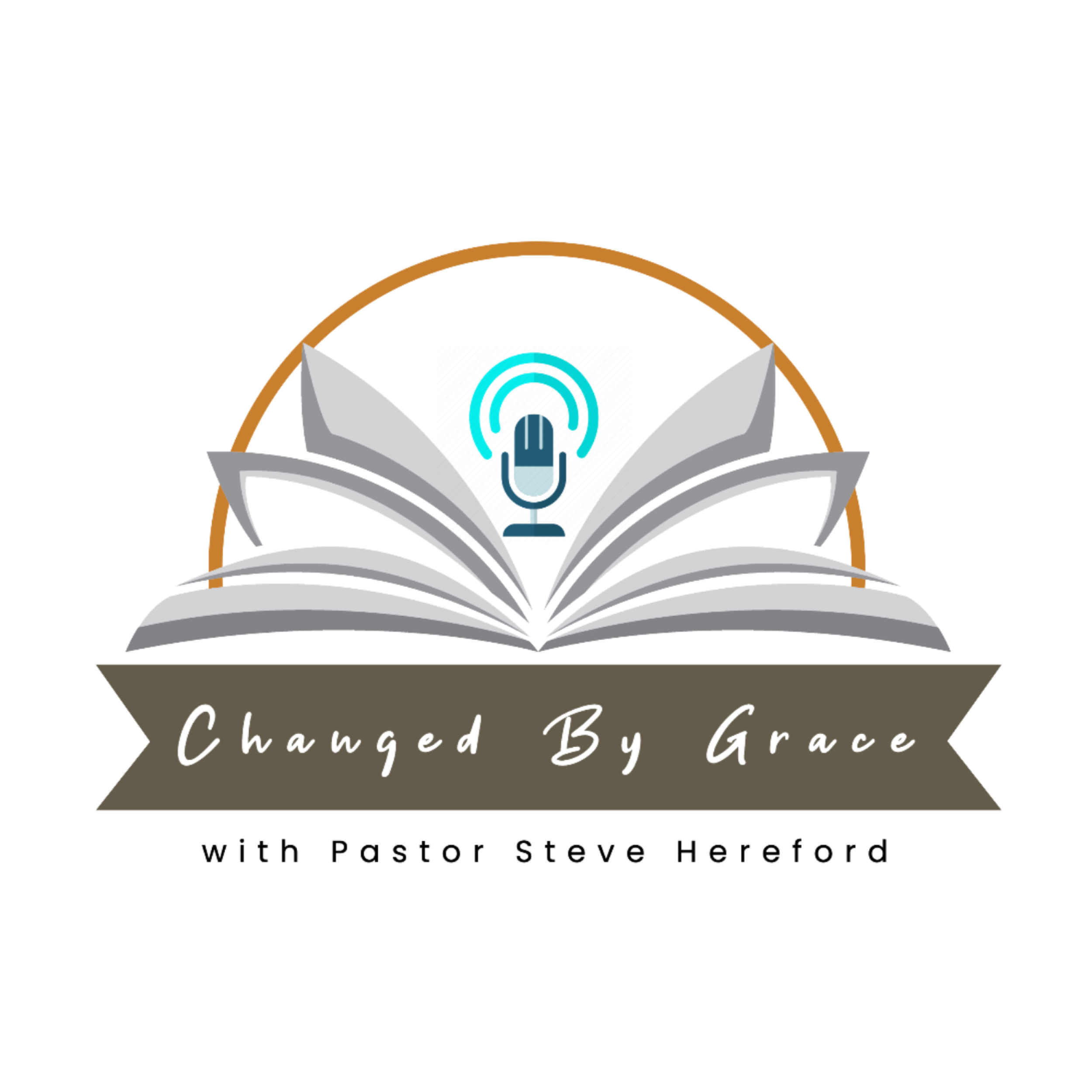
Changed By Grace
PodPoint
The Benjamin Dixon Show
The Benjamin Dixon Show
Thinking in Public with Albert Mohler
R. Albert Mohler, Jr.
Who Killed JFK?
iHeartPodcastsThe MacArthur Center Podcast
The Master's Seminary
Jean Jacques Machado : No Gi Required
Jay Zeballos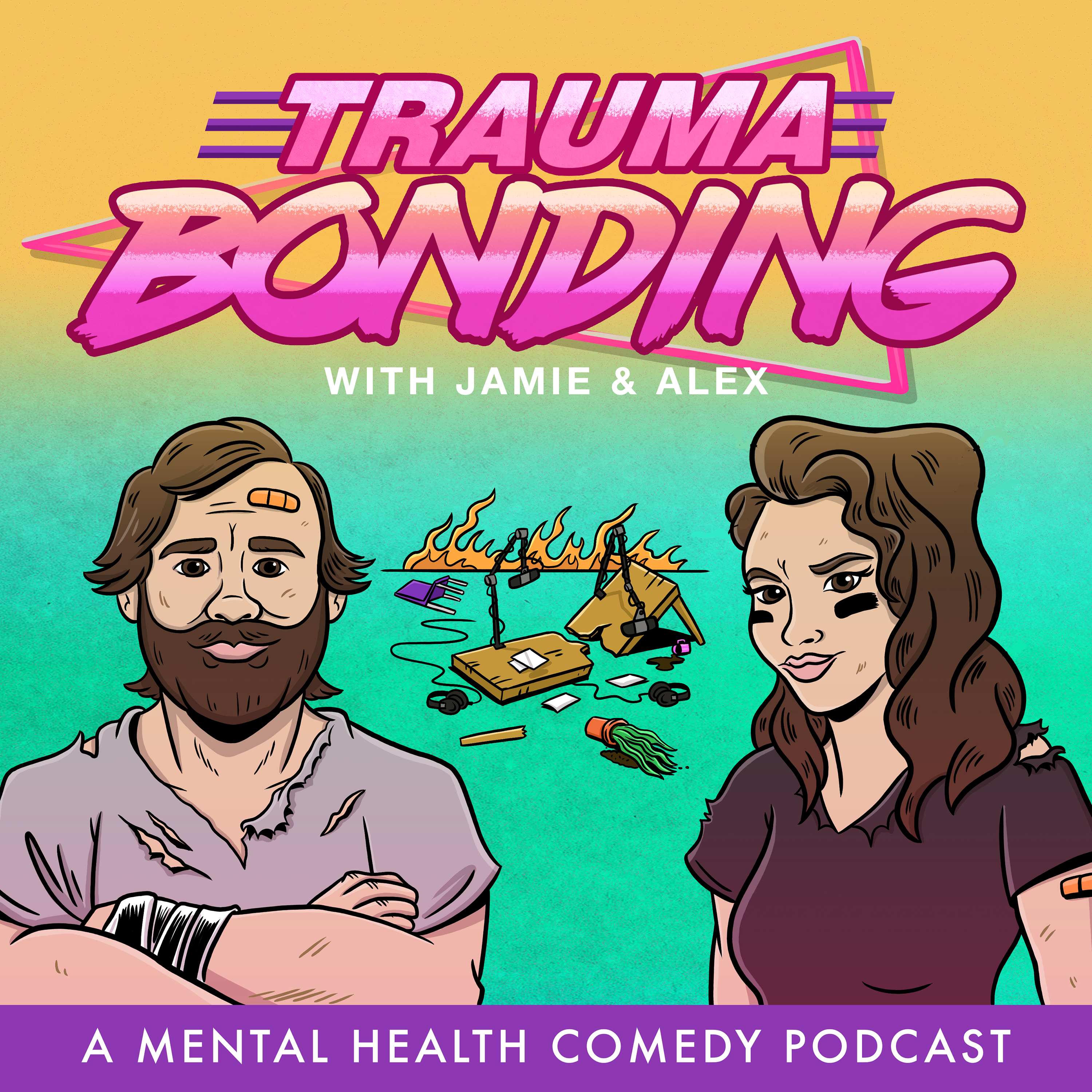
Trauma Bonding
Jamie Kilstein
This Day in History
The HISTORY Channel
The Ben Shapiro Show
The Daily Wire
The Sean Hannity Show
Sean Hannity
Breaking Points with Krystal and Saagar
iHeartPodcasts
The Kyle Kulinski Show
Kyle Kulinski